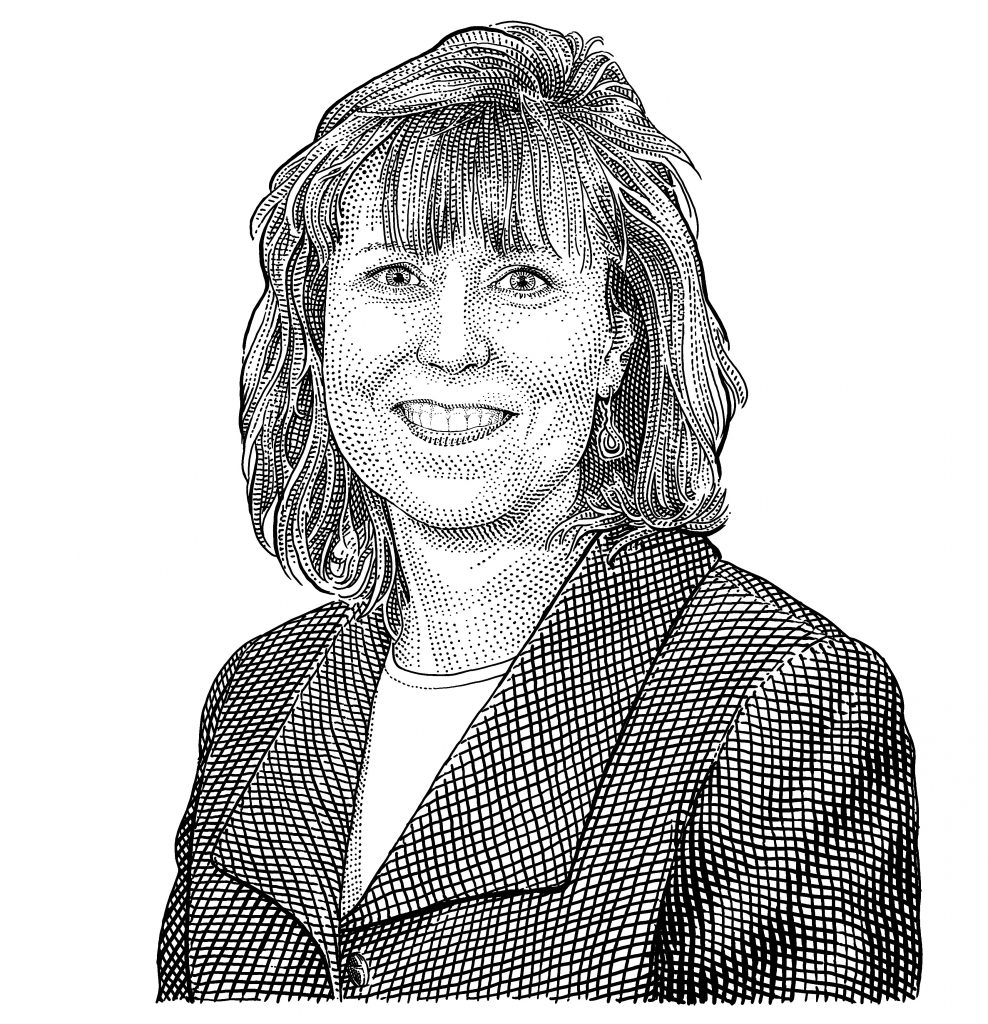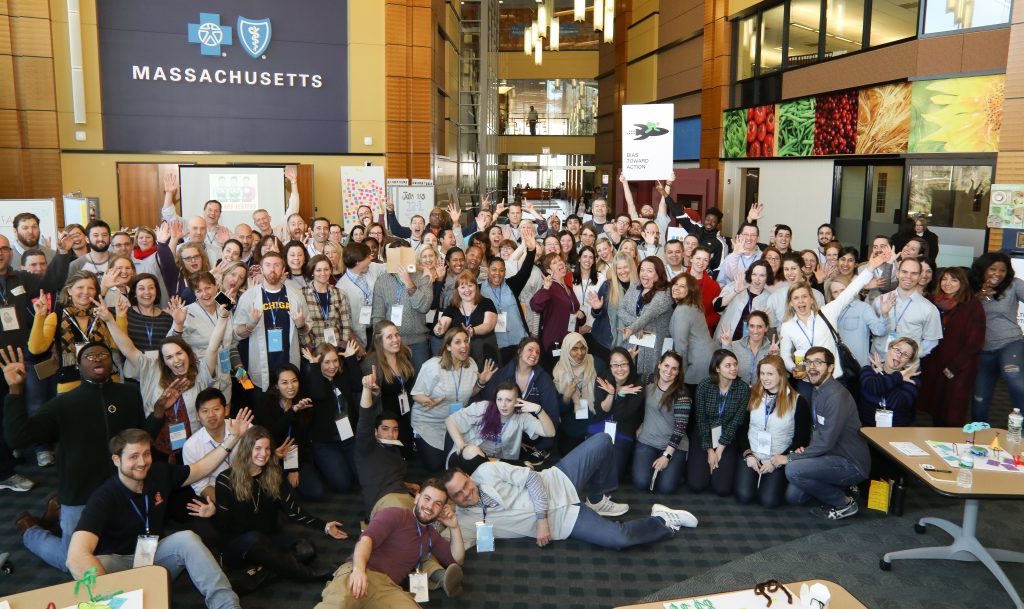Beth O’Rorke joined Blue Cross Blue Shield of Massachusetts as both a CIO and SVP of Operations in 2015. Her return to the insurance sector was as much an industry homecoming as it was an opportunity to apply her progression of experience in leading both business operations and technology functions from companies across several diverse industries.
Before joining BCBS, O’Rorke gained valuable experience in account management, program management, and as an eBusiness leader at Allmerica Financial. Following her eight-year-stint, O’Rorke joined Staples and for over ten years ran the North American retail and online channels technology function, afterward spending a year with Ahold, Inc. as a Global IT leader. Now, at BCBS of Massachusetts, she manages a technology team of 550 employees as well as a few hundred vendor partners leading the Enterprise Technology division.
In this edition of The National CIO Review, we had the opportunity to chat with Beth regarding her career progression and how her non-traditional path led to her role as CIO for BCBS [of MA].

Walk me through your path and your thoughts around joining Blue Cross Blue Shield of Massachusetts.
When the opportunity was presented to become the CIO and SVP of Operations at BCBS [of MA], I thought, ‘that looks really exciting.’ I was intrigued with the combination of not being siloed as “only an IT leader” but also being able to own a portion of the business and serve on front line of our core business function. It was incredible learning experience.
Throughout my career I had questioned my desire to become a CIO and certainly had the opportunity, however there was always that question of is now the time, am I ready?
At this stage in my career when the role was offered to join as a CIO with full authority to make an operational impact, I knew I was ready. It was time.
Would you consider yourself a CIO, CTO, or a hybrid? Why? What are the essential differences at this point in your career?
I would offer that I am more of a hybrid. I am best when I understand the business outcome and surround myself with the right technology talent to work together to effectively architect solutions from a business perspective.
When faced with a business challenge, my strength is in approaching it first as a business leader. I collaborate with my peers and align the strengths of my team to cultivate opportunities that technology alone could never have accomplished in the past.
At BCBS [of MA] you not only have the CIO role, you also held the SVP of Operations position for over three years. What made you the right kind of person to not only lead IT, but also to take on a very important piece of the business itself?
My undergraduate and master’s education was concentrated in business management, not IT, so my path was set early as a business leader. I think because of that start and with my career experience in being able to relate to the business and quickly grasp our core challenges, all have contributed to my ongoing success.
Granted, [at BCBS of MA] our leadership on the operations side was very seasoned so the need over the past three years was simply to assist and orchestrate what we needed to do as a collective team. Our business complexity has changed in the last year and the need for digital and analytics capabilities has shifted my focus to 100% on technology. With analytics becoming extremely important plus the high standard for digital, the technology side is at the heart of our business now and we have a lot of exciting work ahead.
What initiatives have you overseen to date in your time with BCBS of MA? What are some of the things on the horizon?
On the technology side we are doubling down on security. We have made dramatic steps forward to secure our foundation and continue to put key capabilities in place. We’ve also worked hard to clean up our technology stack.
Digitizing our business is also a focus across the company in order to streamline operations as well as provide insight from our data to directly benefit our members and accounts. Healthcare as an industry is behind the curve, but we don’t have to be.
To what extent has your unique mix of skills in business and IT empowered you to implement change or new technology at a faster pace?
When people meet me, they quickly learn that forward momentum is a part of my nature. It’s not change for change’s sake, it’s change for achieving positive results.
When problem solving I like to brainstorm and work through the issue by framing it in the language of the business and how this will impact our core customer. My ability to assist with the translation helps my team understand the context to be: ‘OK, that makes sense.’
I am pleased that our leadership has been very trusting of my advice and perspective. Being able to present ideas in a way that people can easily digest is critical because we are change oriented and our industry is ripe for change.
Share your thoughts on the availability of IT talent? What strategies do you employ, and what’s different in your organization?
There’s definitely a war for talent, and I think being in the Boston area, even more so. Attracting specialized management and individual contributor talent is very hard because many desire to work for a cool company. What we need to do is really share our story. It’s a great one. We’re actually a cool company doing some cool stuff and they can be a part of it.
Furthermore, we have a defined purpose because we actually desire to change healthcare, and we want to do a better job for our members. This is the main reason I came to Blue Cross. We’re a fresh Blue Cross with an assemblage of talent from many different industries. We are making change in order to deliver on our promise to always put our members first.
What personal traits and attributes are essential for a CIO or technology leader today versus 10 or 20 years ago?
I think the change revolves around getting comfortable with your business partners being technology astute. Internally, I think you want a tech savvy community because the more people that understand technology, the better we can apply it to the right business problems. That’s something that will be different in the future.
People talk about “shadow IT” as a negative. I am OK having technologists in different parts of the organization as long as we are all pointed in the right direction together. When one goes rogue, or off guideline, architecture or policy, then I have a problem and rein it in.
What advice would you give to someone who aspires to be a CIO?
It is important to think like a business person and learn the business, what makes the business run and how one can look at technology as a way to enable opportunities for growth or solve a pain point. I would say one should let your career path naturally happen, although raise your hand for tough assignments. Those who over-manage their career really don’t get too far.
In fact, you shouldn’t be shy raising your hand for something that’s a little bit out your comfort zone — not the traditional IT thing — and let it elevate you to that next point of learning. In technology if you’re not learning you’re dead. Technology is moving so fast you must stay up with it. If you ever think you’re done learning (which includes life), that is a big mistake.
Who have been your biggest influences, and why?
The person that I always sought for counsel was my mom. She didn’t know much about technology but was a business savvy leader always with encouraging words and unique approaches to problem solving.
One of her best pieces of advice was, “Treat everybody like you want to be treated”. It doesn’t matter what role or level a person is, be respectful especially when no one is watching.
How do you decompress from the challenges of being a CIO? What do you do for fun?
I enjoy travelling and spending time with my son and husband. Of course, with my son it can be as simple as playing video games together. I also try to get outside often and enjoy going for a jog or riding a bike. But right now, any down time is usually family time.
Which books have you gifted the most over your career? What are the top books that you recommend?
The book I give out most, is “The First 90 Days” by Michael Watkins. That book has been so important to me at least four or five times in my career transitions. The biggest learning there is that what you’ve done in the past doesn’t make you successful in the future, so you really must reflect and determine the best course of action in each situation. Other books I often recommend since they hit close to home are “Authentic Leadership” by Bill George and for those challenging times, “Crucial Conversations” by Patterson/Grenny.
If you weren’t doing the job that you have today, what would be your dream job?
That’s a tough one. When I think about a second career, it would have something to do with giving back such as becoming a professor. Being able to share my life experience and learning would be something that I think would be a neat thing to do in terms of helping others to achieve their goals. Giving back is very important since so many have given so much to me.
We have asked you many questions, but as a final question, what would you want our readers to know about you that we haven’t asked?
Follow your passion and figure out what you’re good at and what is needed. Make a career that works for you and really, anything is possible with this alignment. Changing industries is possible because I’ve been in three different industries. Trying to do what you like to do, what you’re good at, what you’re passionate about, and finding that sweet spot is something that everyone should pursue. And you should because life is too short. You put so much into your work and you must have that nice balance to fully enjoy this life that we are given.






